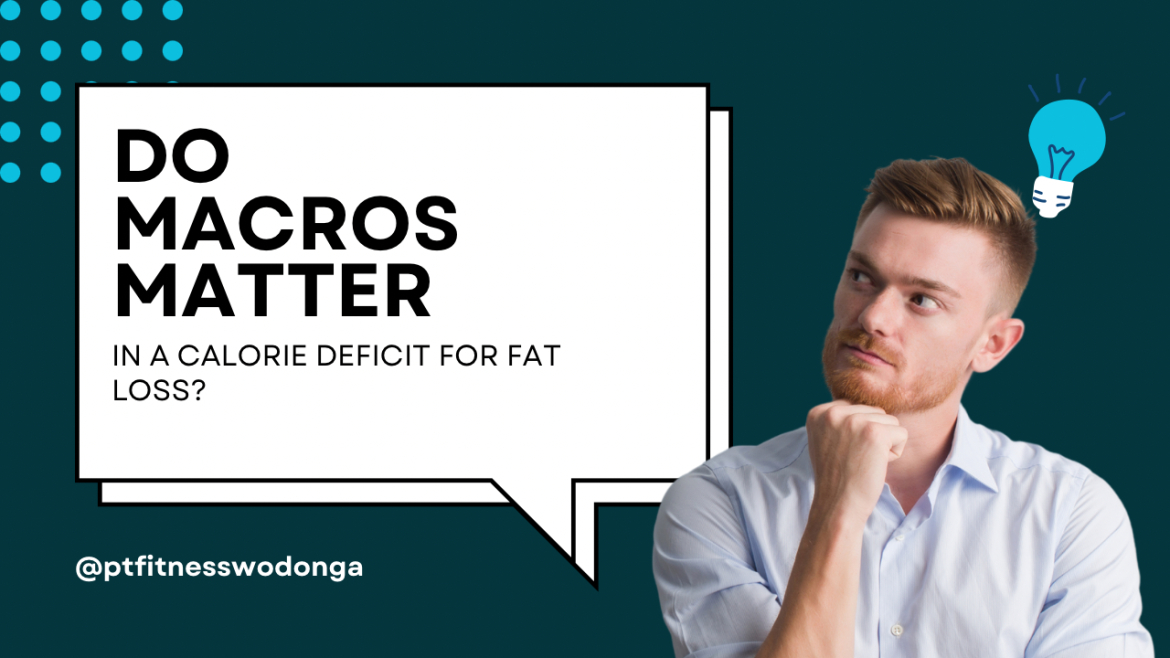One of the most common questions in the world of fat loss is: If I’m in a calorie deficit, do my macronutrients still matter?
It’s a great question—and the answer is a little more nuanced than just yes or no.
First, Let’s Talk Basics: The Calorie Deficit
At the core of any fat loss strategy is a calorie deficit. That means you're consuming fewer calories than your body needs to maintain its current weight. So technically, no—your macros don’t have to be perfect to lose fat. You could, in theory, eat nothing but ice cream every day, and as long as you stay in a calorie deficit, you’ll lose weight.
But here's the catch: how bad are you prepared to feel while doing it? And what kind of losses in performance, strength, energy, and general well-being are you willing to accept?
Why Macros (and Micros) Do Matter
Even though fat loss is dictated by calories in versus calories out, your macronutrient and micronutrient intake dramatically influences how you lose that weight—and how you feel while doing it.
Let’s break it down:
? Protein
-
Crucial for preserving muscle during a calorie deficit.
-
Without enough protein, you risk losing not just fat—but also muscle mass.
-
More muscle = better metabolism = better long-term results.
? Fats
-
Essential for hormonal health.
-
Going too low on fats can lead to serious hormonal imbalances and mood disturbances.
? Carbohydrates
-
Important for energy and training performance.
-
While carbs are a bit more flexible compared to protein and fat, slashing them too low can impact your workouts and overall energy.
? Micronutrients
-
Often overlooked, but vital.
-
Vitamins and minerals impact energy production, cognitive health, immune function, and more.
-
Poor food quality leads to poor micronutrient intake—and that can make dieting a miserable experience.
Food Quality & Hunger Management
Another key consideration is what you eat to reach that calorie deficit.
Let’s say you eat a Mars bar—it might set you back 300–400 calories. That’s a big chunk of your daily allowance if you’re trying to lose fat. Now imagine eating 300–400 calories of chicken breast and broccoli. That’s an entire meal.
Whole, nutrient-dense foods are generally more filling, satisfying, and easier to stick to in a diet. Ultra-processed foods might technically fit your macros, but they often leave you hungry and craving more.
So... Do Macros Matter?
If your goal is only to lose weight on the scale? Then no, macros don’t matter as much.
But if you want to:
-
Feel good during your fat loss phase
-
Preserve your muscle
-
Maintain your strength and energy
-
Protect your hormones
-
Avoid excessive hunger and cravings
Then yes—your macros, micros, and food choices absolutely do matter.
In summary:
Calories determine if you lose fat.
Macros and micros determine how well you lose fat.
Want to feel good, perform well, and actually enjoy the process? Don’t ignore your macros.

